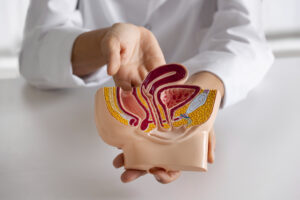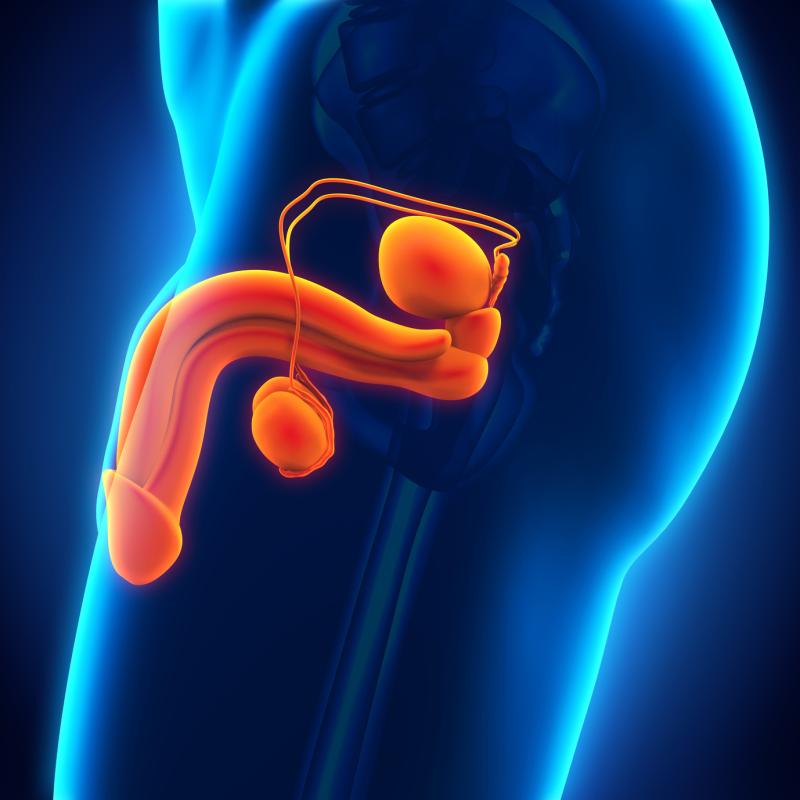Testicular Cancer Symptoms
It is a type of cancer that starts in the testicles (male reproductive organs). Testes are male reproductive organs located in a bag-like structure called the scrotum. Testicular cancer symptoms It usually occurs in young men, usually between the ages of 15 and 35. However, it can also occur in older men.
What are the symptoms of testicular cancer?
You may notice abnormal swelling or softness. This swelling is usually painless. It usually presents as a painless mass or lump. In this case, an abnormal mass within the normal tissue of the testicle can be felt. Pain or discomfort in the scrotum (pouchy skin) are also possible symptoms.
As the condition progresses, you may experience pain or discomfort in the lower abdomen or groin area. One testicle may appear abnormally larger or smaller than the other. Testicular cancer symptoms If it is advanced, back pain may also occur.
In rare cases, there may be a hormone imbalance in the body and breast enlargement may occur. Remember that these symptoms may not be just symptoms of this condition. Similar symptoms may indicate other health problems.
If testicular cancer symptoms If you are experiencing or have concerns, it is recommended that you contact a healthcare professional as soon as possible. Early diagnosis can increase treatment success.
What are the Risk Factors for Testicular Cancer?
It usually affects young adult males. There are many potential risk factors. Some important risk factors include: It usually affects men between the ages of 15 and 35. The risk is higher in men in this age range. It is a congenital condition in which the testicle does not descend into the scrotum (bag) normally.
The risk is higher in men who experience the condition. Having a first-degree family history (mother, father, sibling) may increase an individual's risk. The risk may be increased in men with an extra X chromosome. HIV infection affecting the immune system, testicular cancer symptoms may increase the risk.
Chemotherapy used to treat childhood cancers may increase the risk at later ages. Irrational use of drugs for some bodybuilding or hormone regulation purposes may increase risk.
Individuals who have had the disease before have a higher risk of experiencing it again compared to other people. Other genetic or environmental factors that may be involved are still being investigated. Remember, a person may have one of these risk factors but not develop it.
Even if you don't have these risk factors testicular cancer symptoms There is a possibility of development. If you think you may be at risk or have concerns, it is important to talk to a healthcare professional.
What are the Testicular Cancer Treatment Methods?
Treatment methods may vary depending on the type and stage of the disease and the general health condition of the patient. In general, treatment consists of three main methods: surgery, chemotherapy and radiotherapy. Here is more detailed information:
Testicular cancer symptoms When diagnosed, usually the first step is surgical removal of the tumor. This procedure may involve complete removal or removal of the tumor only from the testicle. The condition of the lymph nodes is also evaluated during surgery. Lymph nodes can also be removed if necessary.
Another method frequently used in treatment is chemotherapy. Chemotherapy involves drugs used to destroy cancer cells and stop their growth. The chemotherapy used is usually done with platinum-containing drugs. Chemotherapy can be applied according to different protocols depending on the type and stage of the tumor.
Radiotherapy aims to target cancer cells using high-energy rays. However, radiotherapy is rarely used in treatment. It can generally be preferred in more advanced stages or in cases where there is no response to surgery.
treatment plan, testicular cancer symptomsis determined according to the type, stage and health status of the disease. When creating a treatment plan, doctors take into account the patient's individual needs and preferences. Regular check-ups during and after treatment are important because testicular cancer can recur.








